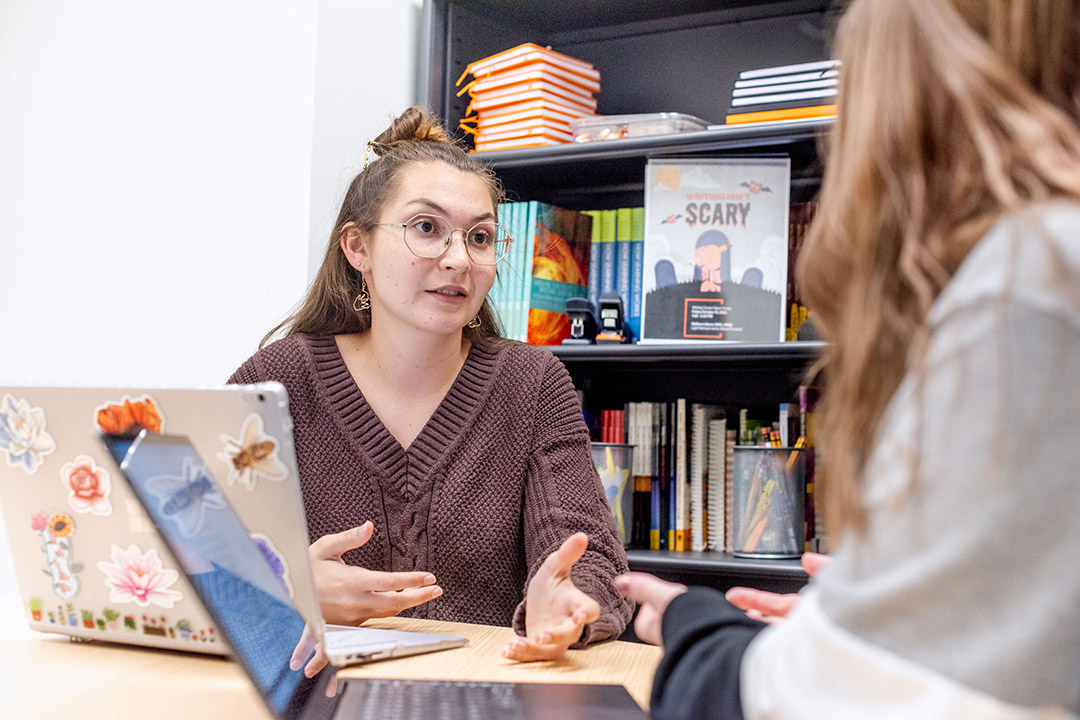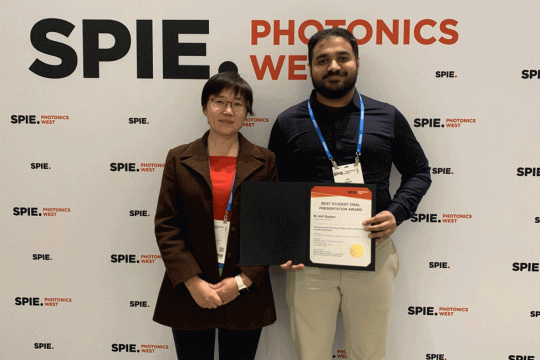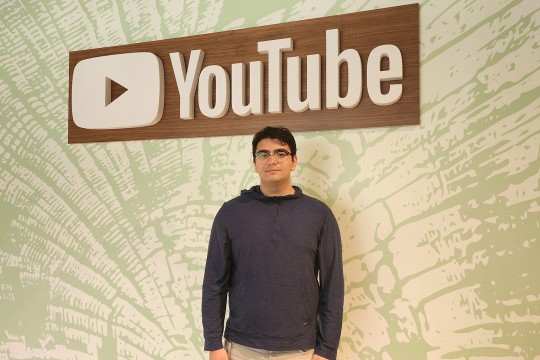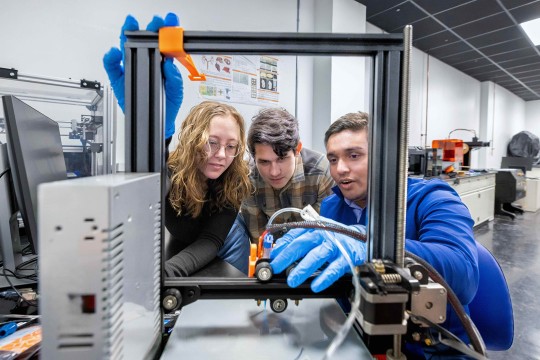Peer consultants at the Writing Center and Expressive Communication Center boost students’ skills and confidence
Students can make an appointment or drop in to work on writing and public speaking
Aum Patel
Abby Block meets with fellow RIT students to help improve their skills and their confidence in writing as a peer consultant for the Writing Center. The Expressive Communication Center provides similar peer consultations for public speaking skills.
In high school, Abby Block didn’t think of herself as a writer. But today, the second-year student is a consultant at RIT’s Writing Center, providing the very same encouragement that transformed her view of her skills.
Block, an ASL-English interpretation major from Long Island, N.Y., with a minor in environmental studies, explained that she began going to the Writing Center after feeling daunted by her First-Year Writing class. “They helped me realize that I did know how to write, just not in the really structured, rigid format that had been taught to us in mainstream high school,” Block said. “I just kept going back for the confidence boost and because it was nice to have another set of eyes for validation.”
The Writing Center and the Expressive Communication Center (ECC) both provide peer consultations to help students gain confidence in writing and speaking, respectively. The Writing Center is housed in the University Writing Program within the School of Individualized Study, and the ECC is part of the School of Communication in the College of Liberal Arts. Both centers are located in the hallway between the SHED and Wallace Library. The consultants at each center are students from across the university, and the relationships they foster with each other continually improve their skills as consultants.
“Writing is a skill you never master, and speaking is, too. You can always continue to develop,” explained Ruth Book, a lecturer in the University Writing Program and the Writing Center coordinator. “The ECC and Writing Center provide a space of shared inquiry where students are really diving into things that are important and thinking through ideas that matter to them, together with a peer.”
Typically, students take Public Speaking before applying to work as ECC consultants, and students take the course Writing Genre, Theory & Practice before applying to work as Writing Center consultants. These courses allow prospective consultants to hone in on the skills that they will be focusing on during consultations. And they provide time for faculty in each program to get to know them.
Elizabeth Reeves O’Connor, a principal lecturer in the School of Communication and the director of the ECC, said that “anxiety about public speaking is a real concern for many students, and we don’t minimize that at all.” She emphasized that the peer-to-peer interactions provide students with a sense of safety, unlike what they might experience when meeting with a faculty or staff member.
The camaraderie and continual practice that comes with being a consultant at the ECC or Writing Center continue to reverberate even after graduation.
Jillian Walton graduated from RIT’s advertising and public relations program in 2021, and she had been deeply involved with the ECC as a student. After excelling in the Public Speaking course, she became an ECC consultant before moving into a co-op position at the center. Following her graduation, Walton knew she wanted to stay in higher education in some capacity. So she taught RIT’s Public Speaking course and then became an office assistant at SUNY Brockport.
Eventually, Walton applied for an admissions advisor position where she needed to give a presentation as part of the interview process.
“I was least scared to do the presentation,” Walton said. “I called upon those techniques and everything that I knew that I had learned for five years of my life, and it all culminated in me eventually getting the job.”
For Block, her experiences going to and now consulting at the Writing Center have been encouraging. “I never considered myself a writer in the past, and now that part of my identity has shifted. It gives me hope that maybe one day I can learn to expand my knowledge even further than I thought before.”













